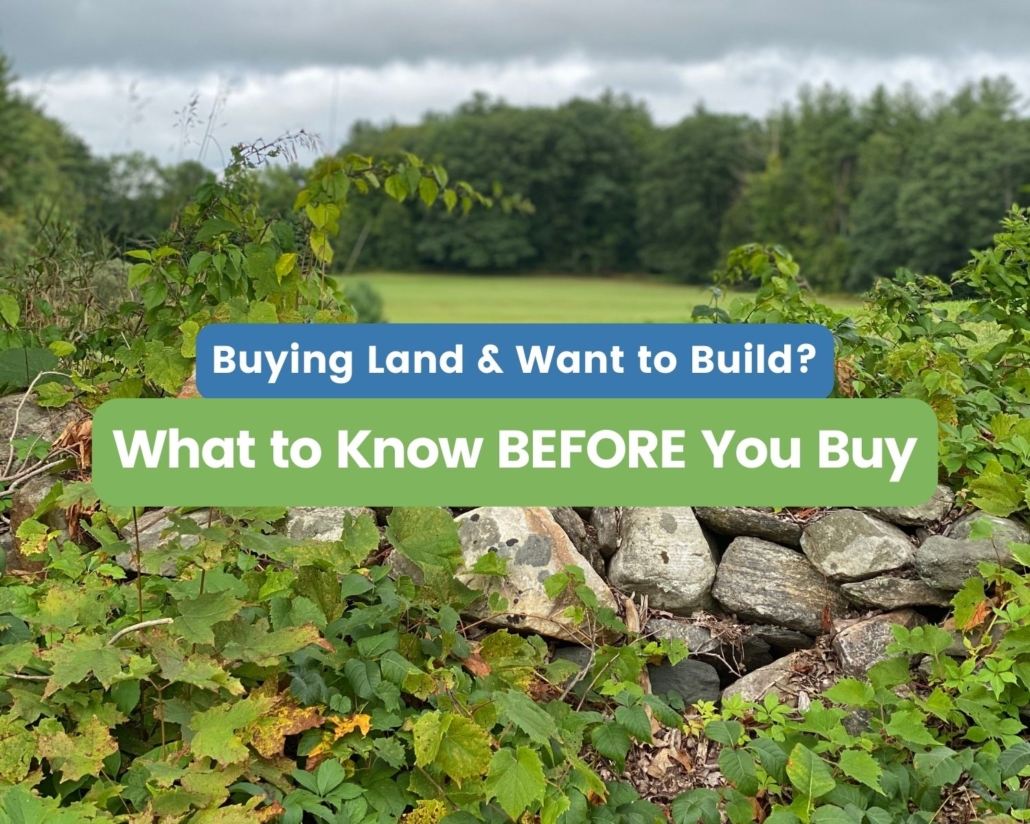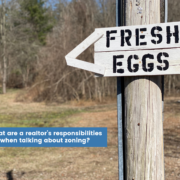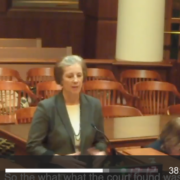Buying Land in the Berkshires? Avoid Pitfalls!

If you’re buying land in the Berkshires, you almost certainly want to be able to build on that land. It’s important to have the opportunity to sufficiently evaluate the land for your needs before you buy.
You don’t want to ask after the purchase, “How close to the property line can I build?” or “How do I know if my property is big enough to build on?” and find out you can’t build that guest house or put an extension on your current home.
We’ve seen this happen before. Here’s an example:
An individual purchased a property in Great Barrington. The tax map showed that the property was 100 ft wide x 100 ft deep (minimum for a building lot). Unfortunately, the assessor’s office had rounded up; the property was under the minimum size requirements and so was not a building lot at all. It’s only practical use was as a back yard for a neighboring property. The new owner could not build on the property and came to us for help. We wish they had consulted with a zoning attorney before the purchase!
Here’s what you need to know about buying land in the Berkshires and standard land rider.
At the time you sign the contract to buy the property, your realtor will likely attach a Land Rider to the contract.
Among other things, the Land Rider may contain a condition that the lot be deemed a “building lot” by the local building inspector. Unfortunately, there are many other potential issues that could prevent you from building on the property or that could limit where and how you build on the property. At Lazan, Glover & Puciloski (LGP), we strongly recommend that buyers include a contingency in the contract for review and their subjective approval of the uses of the lot.
Property is deemed a “building lot” if it is the required size and has the required length of frontage along a road.
These rules are set by towns under their zoning bylaws. For instance, a town may require that a building lot be 2 acres in size and has 150 feet of frontage along an approved road.
Even if a property meets those minimal qualifications, it may not in fact be buildable at all.
All or part of the lot may be unbuildable if it is within protected areas, such as areas in the jurisdiction of the Wetlands Protection Act or the local wetlands bylaw of the town. Similarly, clearing of land and construction can be significantly limited if the town has adopted the Scenic Mountains Act.
Local zoning bylaws regulate how many and what size of accessory structures may be located on the property.
Examples: sheds; detached garages; swimming pools. Zoning can regulate the location, length, and grade of a driveway; the location, height, and materials for fences; and even the number of dogs that can be considered pets as opposed to a commercial kennel. A buyer needs an opportunity to understand what limitations there are on the property.
In addition, the buyer will want to consider what use can be made of the surrounding properties.
There are numerous possible uses of neighboring areas that can impact a property. For instance, in a Right to Farm community, a commercial farming operation could be located next to the property. The possibility of large solar installations and outdoor cannabis growing facilities may also be considered. Even local rules concerning the use of short-term rentals (such as VRBO or Air BnB) can effect an abutting property.
We strongly recommend that a contract for the purchase of land include a period in which the prospective buyer can obtain all desired information concerning the property. Any buyer of land should consider retaining an attorney to perform a zoning review of the property, and should consult with a wetlands expert and possibly an engineer or architect, to confirm that the buyer’s vision for the property is achievable.
Contact Lazan Law if you’re about to embark on a home buying journey in the Berkshires.
Disclaimer: The information contained herein is for informational purposes only. It does not constitute the rendering of legal or other professional advice or services. Your review of this post and/or use of the Lazan Glover & Puciloski, LLP website does not create an attorney-client or confidential relationship between you and Lazan Glover & Puciloski, LLP or any of its attorneys. Information provided herein or on the website should not be relied upon or used as a substitute for consultation with legal, accounting, tax, and/or other professional advisors. Since any electronic communication between you and Lazan Glover & Puciloski, LLP through this website will not be privileged or confidential, it may be disclosed to other persons and may not be secure. Accordingly, please do not send any e-mail to the Firm that contains confidential or sensitive information without first speaking with an attorney at Lazan Glover & Puciloski, LLP and receiving permission to do so.










